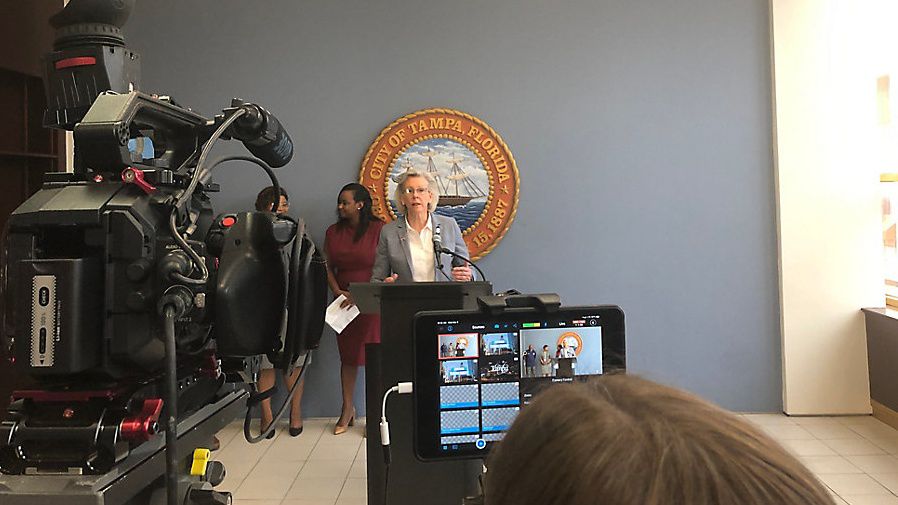TAMPA, Fla. — A pilot program in Tampa that will provide rental assistance for those in need has become so popular since going live a week ago that Mayor Jane Castor’s administration will request an additional $4 million from the city council to fund it on Thursday.
What You Need To Know
- The average monthly rent in the Tampa Bay area metro area increased by 25.6% last year, the second highest level of growth in the country (Riverside-San Bernardino-Ontario, CA. was the highest)
- The rents in the Tampa Bay area metro area in December were 35% higher than year before
- The overall median rent in the Tampa Bay area at the end of last year was $2,038
“We had a million dollars that we had put towards this program, and now we are walking on—thanks to [City Council] Chairman Orlando Gudes—a request to be able to spend $4 million additional dollars,” Castor told reporters at a press conference held inside the Tampa Police Department headquarters on Wednesday.
Rental costs in the Tampa Bay area have increased exponentially over the past year and become a “crisis,” the mayor says.
“We have individuals—teachers, nurses, restaurant, hospitality workers—who are working full-time and cannot afford [rent] if they can find a location to live,” Castor added.
The Rental and Move-in Assistance Program may include providing security deposits, first and last month’s rent and/or an ongoing monthly rental subsidy. That financial assistance will be determined per household, but single people making up to $72,380 could be eligible.
Only those people moving into a rental unit in Tampa or renewing a lease with city of Tampa limits with a rent increase are eligible.
A total of 560 people have already accessed the program since it began on March 1.
Kayon Henderson, the manager of the Housing & Community Development Division for the city of Tampa, said that this program is going to help more people than any other rental assistance programs the city has offered because it will provide help to those who make up to 140% of the area’s median income.
“What that really means for a family who’s listening is a single person, a family of one who wants to apply for assistance, if they make up to $72,380 they would still qualify for this program, which they otherwise wouldn’t have been,” she said.
Escalating rent payments and the overall issue of affordable housing has exploded in the Tampa Bay area and other metro areas of Florida over the past year.
The average monthly rent in the Tampa Bay area metro area increased by 25.6% last year, the second highest level of growth in the country, according to Realtor.com.
Housing activists have called for the Tampa City Council to declare a housing emergency under state law. That would have triggered a process that would have allowed residents to vote for rent control for a year, but the council rejected that idea last month.
Mayor Castor said that her administration has looked at rent stabilization and capping rent, but believes they aren’t the answers to the housing situation.
“If we put the caps on rent and rent stabilization, that’s going to kill development in our particular area,” she said “Developers are going to go other locations throughout the United States that will welcome them and their projects.”
Tampa City Council Chair Orlando Gudes, who was the only councilmember to support the call for declaring a housing emergency, said Wednesday that he knew “from the get-go” that the original $1 million set aside for the rental assistance program wouldn’t be sufficient.
“We’re getting tons of calls for help,” he said. “We have a crisis situation.”



